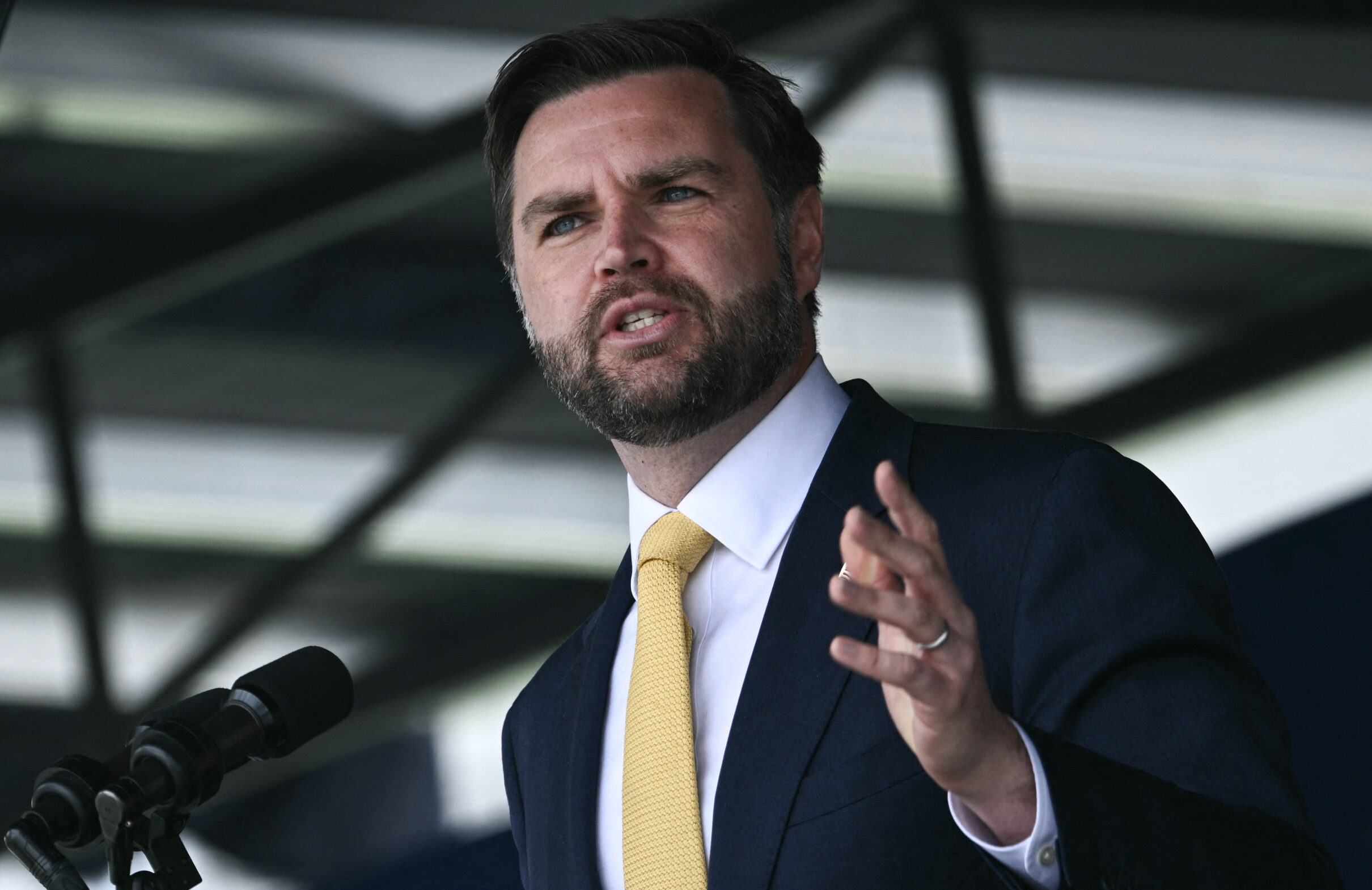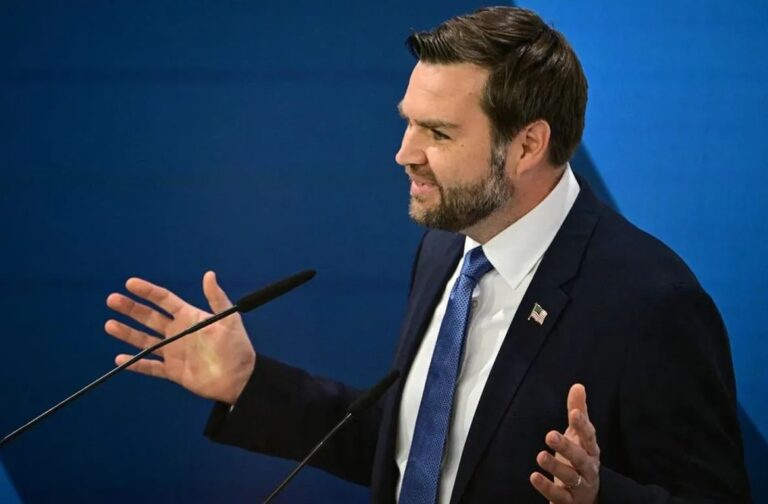JD Vance Bitcoin speech Ohio Senator JD Vance delivered a speech at a significant Bitcoin event this week, highlighting his agreement with pro-crypto policies while also indicating the Trump administration’s growing ties to the cryptocurrency industry in a fascinating mix of politics and money. This live-streamed appearance marks a turning point in how the Republican establishment views digital assets, sparking discussions among blockchain supporters, political analysts, and institutional investors alike.
Leading former President Donald Trump, the Republican Party is deliberately incorporating cryptocurrencies into its broader economic and technological policy narrative as the 2024 U.S. presidential contest approaches. JD Vance’s attendance at the Bitcoin conference highlights the GOP’s shift toward DeFi, blockchain technology, and crypto-friendly legislation.
JD Vance Champions Bitcoin and Financial Freedom
Former venture entrepreneur, best-selling memoirist, and author of Hillbilly Elegy, Senator JD Vance is emerging as a leading thought leader in the digital economy. His attendance at the Nashville, Tennessee-based Bitcoin 2025 event is beyond a mere keynote speech. It was a well-planned action meant to confirm the conservative reputation among crypto enthusiasts.
Vance underlined in his address the possibilities of Bitcoin as a decentralised store of value, a hedge against inflation, and a pillar of financial sovereignty. Under the present Biden administration, he emphasised the need to safeguard the Bitcoin network from overregulation and expressed alarm about what he called “bureaucratic hostility from federal agencies.”
Vance associated himself with a growing coalition of legislators, such as Cynthia Lummis and Tom Emmer, who viewed Bitcoin as more than just a digital asset, supporting a clear regulatory framework and a hands-off approach from the Securities and Exchange Commission (SEC). Politically, it represents personal freedom, creativity, and opposition to centralised financial management.
Trump’s Evolving Embrace of Cryptocurrency Policy
Once a vocal critic of Bitcoin and other cryptocurrencies, former President Donald Trump has undergone a significant shift. Trump has not only recently praised digital assets but also added crypto-savvy consultants to his 2024 campaign staff. Insiders say the campaign is exploring blockchain solutions for voter involvement, implementing smart contracts in government logistics, and possibly issuing stablecoins supported by the United States.

Key players in the Trump circle, including billionaire tech investor Peter Thiel and former Treasury Secretary Steven Mnuchin, have reportedly been interacting with crypto sector experts to help develop a forward-looking digital asset policy platform. With JD Vance serving as a bridge between grassroots crypto activists and mainstream conservative politics, these changes are reshaping the GOP’s stance on financial technology.
Republican Crypto Policies Reshape U.S. Finance
The business environment has been significantly changed by the Republican Party’s turn toward cryptocurrencies. Supported by many Republican senators, the proposed Financial Innovation and Technology for the 21st Century Act aims to establish jurisdictional clarity between the Securities and Exchange Commission (SEC) and the Commodity Futures Trading Commission (CFTC). This measure can serve as a basic legislative framework that supports innovation while safeguarding investors.
The speech by JD Vance also hinted at tax changes tailored for crypto traders, including a possible capital gains exemption for long-term Bitcoin holders and more precise guidance on staking rewards and distributed finance earnings. If passed under a future Republican government, these legislative projects could make the United States a global hub for cryptocurrency enterprises.
Furthermore, the GOP’s pro-crypto stance is likely to attract institutional investors who have been on the sidelines due to legal uncertainties. This includes pension funds examining Bitcoin ETFs and tokenised real estate as alternative investment vehicles, as well as hedge funds and family offices.
Bitcoin’s Rising Role in U.S. Politics
JD Vance’s Bitcoin speech, livestreamed in its original format, guaranteed broad exposure, reaching both conventional viewers and crypto-native viewers alike. After the incident, X (previously Twitter) and YouTube saw real-time interaction with hashtags including #VanceBitcoin, #TrumpCrypto, and #Crypto2025.
Advocates of cryptocurrencies, such as Anthony Pompliano and Natalie Brunell, complement Vance’s clear defence of digital sovereignty. Concurrent donations and grassroots initiatives, such as the eBitcoin Institute and the ToshitFund Fund, indicate a wave of grassroots involvement in Bitcoin and decentralised money. This intersection of civic activity and crypto advocacy suggests that Bitcoin is no longer just a financial experiment; it’s becoming a significant topic in American political and cultural debate.
Bipartisan Support Fuels Web3 Innovation Momentum
Business leaders reacted favorably to Vance’s comments. Support was tweeted by Coinbase CEO Brian Armstrong, who noted that blockchain innovation depends on political backing and regulatory certainty. Statements stressing the need for bipartisan support to preserve the integrity and scalability of Web3 technologies also come from Kraken, Gemini, and ConsenSys.
The event featured booths and panels showcasing Web3 startups, miners, and developers, thereby generating a real-time feedback loop between legislators and the sector. Lightning Networks, privacy-centric wallets, and global identification systems are crucial to the future of digital money.
Global Crypto Trends and U.S. Regulatory Lag
The speech by JD Vance also made analogies with global patterns. While nations like the UAE and Singapore are becoming crypto-friendly zones, and the European Union advances with its Markets in Crypto-Assets Regulation (MiCA), the U.S. lacks regulatory clarity.
Vancto counters this trend by presenting him as a proponent of blockchain entrepreneurship. His message was an unambiguous call to entrepreneurs in crypto innovation, even if the US were to fall. The geopolitical consequences cannot be overlooked when nations like El Salvador adopt Bitcoin as their legal currency.

